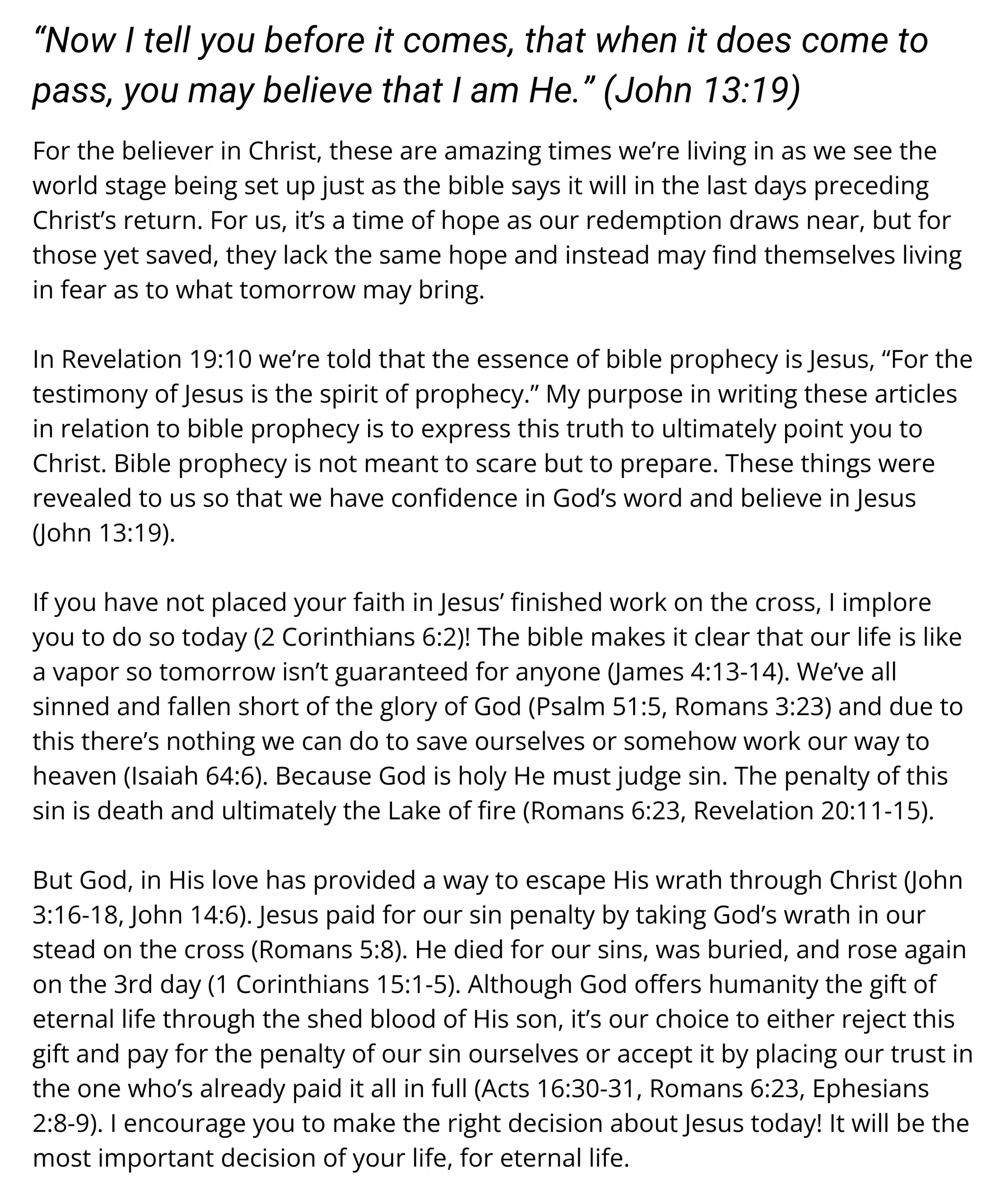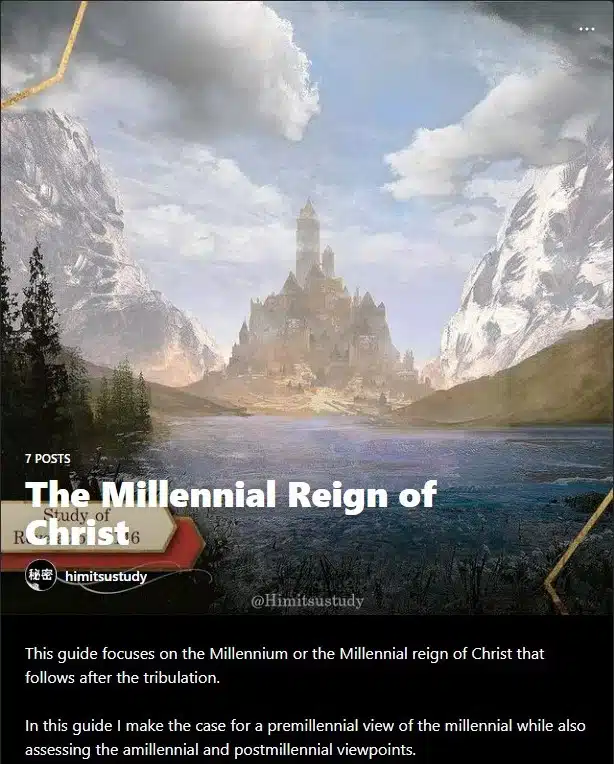Was the reestablishment of Israel as a nation in 1948 a fluke of history or the result of God’s miraculous working on behalf of His people? Although I and many others see God’s supernatural hand in it, most church leaders today claim Israel’s current existence has nothing to do with Bible prophecy.
For those who follow me on social media, specifically on Instagram, you’re already familiar with the fact that I’m passionate about both defending and correctly teaching others about what God’s word has to say concerning His people – the Jews – and His promises to them, one of the primary focuses of this article being His land promise (Genesis 12:1, 7).
Unfortunately we’re seeing a growing trend in churches and amongst Christians that believe that God is through with His people and has taken all the promises that belong to them and has instead ascribed it to the church instead. This belief is known as Replacement Theology which I’m sure many of you are familiar with.
This view is so prevalent in fact that even some Jews are aware of it. In a January 5th Israel Today article, Exclusive: “Third World War Could Erupt From Temple Mount,” Warns Jerusalem Expert, “Jerusalem expert” Dr. Samuel Berkowitz brought up this view with his interview with Israel Today’s Editor-in-Chief Aviel Schneider when asked the question “What role does the Christian world play in the conflict over Jerusalem?”,
Under Israeli rule, the Christian world is enjoying religious freedom in Jerusalem as never before. Things were very different under the Ottomans and the Jordanians. But there are two disturbing issues.
The first is the classic Christian theology that accuses us Jews of having killed Jesus, which leads to antisemitism. In this view, the Jewish people are an accursed people who should not be permitted to exist. The Church regards itself as the new Israel. They are the spiritual Israel, and we are Israel in the flesh. These Christians have a fundamental problem with the return of the Jews to Eretz Israel (the Land of Israel) and the founding of our state. (Israel Today)
It’s worth noting that this is not a biblical view. But due to its prevalence he, and I’m sure many others, truly believe this is what the bible actually says and therefore what Christians hold to be true. This is a view I often speak against and can commonly be found among those who adhere to an amillennial or postmillennial view of the last days rather than a premillennial view. Through a series of posts, I strive to make a biblical case for the premillennial view which can be found on my Instagram account here but also hope to lay out in article format on this site in the future, Lord willing.
- Premillennialism: the belief that Jesus returns to the earth after the tribulation period and inaugurates His kingdom on the earth upon His return which lasts for a literal 1,000 years.
- Postmillennialism: the belief that we’re currently in the millennium, a long period of time and not a literal 1,000 years. Christ is reigning through the gradual increase of the gospel on the earth.
- Amillennialism: the belief that we’re currently in the millennium, a long period of time and not a literal 1,000 years. Christ is now seated on the throne of David with the church age being the kingdom that he’s reigning over.
Some may ask why make such a big deal out of this? Who cares what view you hold concerning God’s establishment of the Kingdom or His promises to the Jews? Why does it matter if they’re literal or simply allegory?
It matters because we should care about what scripture actually says. We’re to be like the Bereans, searching the scriptures to see if what’s being told to us is true (Acts 17:11). It also matters because God’s character is being called into question. If God truly promised the Jews something but yet went back on His promise, what does that make Him? A liar which scripture clearly states He’s not (Numbers 23:19; Titus 1:1-2).
It also makes God untrustworthy. If we can’t trust God to keep His promises to the Jews, why should we trust Him to keep His promises concerning our salvation, sanctification, future inheritance, etc? This is an issue that we must not only understand personally, but be able to accurately communicate to others.
In his article, Jonathan Brentner asks 12 questions that causes the reader to think about the claims made by those who truly believe that God has abandoned His people. It’s worth diving into as it will equip you to also make a case for this increasingly important area of scripture.
Jonathan Brentner: They teach that God rejected the people of Israel after their actions led to Jesus’ crucifixion. As a result, He transferred His promises of a glorious future kingdom from Israel to the church, albeit spiritually. We refer to this belief as “replacement theology” since its proponents say that the church has replaced Israel in God’s prophetic scheme.
Does this really matter? Yes, it’s highly important because those immersed in this teaching. . .
- Fail to recognize the myriad of signs pointing to the nearness of the seven-year Tribulation and thus to Jesus’ soon appearing.
- Acknowledge the rampant evil of our day, but do not see the satanic nature of the deadly battle that rages around us.
- Remain blind to the spirit of the antichrist that is now openly and actively setting the stage for his coming kingdom.
This is not a trivial matter, replacement theology not only strikes at the validity of future Bible prophecy, but it also mutes the voice of the church at a time when pastors need to warn their flock about what’s coming and comfort them with the “blessed hope” of the Gospel.
My prayer is that the following dozen questions and my brief answers to them will encourage you. Our joyous hope in Jesus’ appearing to take us to heaven before the seven-year Tribulation has its roots deep in the promises God made to Israel long, long ago.
1. HAS GOD RENEGED ON HIS COVENANT OF THE LAND WITH THE PATRIARCHS?
When the Lord made His covenant of the Land with Abraham in Genesis 15:12-21, He made its fulfillment totally dependent on Himself rather than on the behavior of its recipients. Furthermore, Israel has never occupied all of the Land He promised to the Patriarchs.
In Psalm 105:7-11, God specifies that His covenant of the Land is “an everlasting covenant.” How can one say that this “everlasting covenant” is now invalid without altering the meaning of the word “everlasting?”
God’s covenant of the Land with Israel remains in effect today. It’s impossible for Him to renege on the solemn oath He swore to Abraham in Genesis 15:12-21. It is, after all, His eternal promise.
2. WHEN DID GOD CLEANSE THE PEOPLE OF ISRAEL FROM ALL THEIR SINS AND PUT HIS HOLY SPIRIT IN THEM?
In Ezekiel 34:22-37, God promises, among many other things, to gather the Israelites “from the nations,” cleanse all their sins, and put His “Spirit within them.” The fulfillment of these verses couldn’t have happened before Jesus’ ascension back to Heaven (John 16:7) because God couldn’t give the Holy Spirit in such a way before that time.
One must greatly distort the meaning of the prophet’s many physical promises to Israel in this passage to make them even remotely apply to the church. Both the spiritual an tangible pledges refer to a future restored Israel.
The question remains: When did the Lord fulfill the promises to Israel that He recorded in Ezekiel 34:22-37 after the Lord’s ascension? He hasn’t done so, but will do so in the future.
3. WHEN DID THE ISRAELITES REPENT AS RECORDED IN ZECHARIAH 12:10-13:1?
In Zechariah 12:10-13;1, the prophet records a time of great repentance for the people of Israel that occurs once they recognize that they crucified their Messiah. In this passage, the Lord goes out of his way to emphasize that this prophecy applies exclusively to the descendants of Jacob and no one else.
It’s as if God knew that someday people would take this as a reference to the church and He needed to disallow such confusion by making sure we understand that this future awakening further applies to the “house of David” and to the inhabitants of Jerusalem.
These words surely await a future awakening of Israel, the one Paul refers to in Romans 11:25-36.
4. WHEN DID JESUS RULE OVER THE NATIONS FROM JERUSALEM?
In Zechariah 14:9, we read these words:
And the Lord shall be king over all the earth: in that day shall there be one Lord, and his name one.
The context makes it abundantly clear that Jesus reigns over the nations of the world from Jerusalem. If we take the words of this prophecy in the way the prophet intended, the reign of Christ as described in Zechariah 14:9-21 has not yet happened. The words of this prophecy absolutely cannot apply to the church unless one subjects them to human wisdom in the form of allegory, the subjective symbolizing of the words.
Since all of Zechariah’s predictions regarding the first coming of Jesus happened precisely according to the words in the text, what’s the justification for applying symbolical meanings to specific words not yet fulfilled? There is none! Read More

Sources
- 12 QUESTIONS FOR THOSE WHO DISMISS THE VALIDITY OF FUTURE BIBLE PROPHECY (January 12th, 2023) – Jonathan Brentner
- Exclusive: “Third World War Could Erupt From Temple Mount,” Warns Jerusalem Expert (January 5th, 2023) – Israel Today




